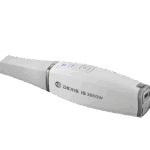NEW YORK (Reuters Health) – The number of young Americans diagnosed with bipolar disorder in outpatient office-based settings has risen dramatically in recent years, according to a new study.
"This increase highlights the need for clinical epidemiological reliability studies to determine the accuracy of clinical diagnoses of child and adolescent bipolar disorder in community practice," conclude the researchers in a report in the September issue of Archives of General Psychiatry.
To examine the prevalence of diagnosed bipolar disorder, Dr. Mark Olfson, from Columbia University, New York and New York State Psychiatric Institute, and colleagues obtained data from the National Ambulatory Medical Care Survey. They compared increases between 1994-1995 and 2002-2003 in office visits that culminated in a diagnosis of bipolar disorder among individuals aged 19 and younger to that among adults aged 30 and older.
They found that outpatient visits with a diagnosis of bipolar disorder in the younger age group increased approximately 40-fold, from 25 per 100,000 in 1994-1995 to 1,003 per 100,000 population in 2002-2003. During the same time, the diagnosis of bipolar disorder in adults increased nearly 2-fold, from 905 to 1,679 per 100,000.
"The impressive increase in the diagnosis of childhood and adolescent bipolar disorder in US office-based practice indicates a shift in clinical diagnostic practices," Dr. Olfson and colleagues suggest.
"In broad terms," they continue, "either bipolar disorder was historically underdiagnosed in children and adolescents and that the problem has now been rectified, or bipolar disorder is currently being overdiagnosed in this age group. Without independent systematic diagnostic assessments, we cannot confidently select between these competing hypotheses."
Dr. Olfson’s team also found that 90.6% of youth and 86.4% of adults were prescribed a psychotropic drug at the time of diagnosis of bipolar disorder, "with comparable rates of mood stabilizers, antipsychotics and antidepressants prescribed to both age groups."
"There is an urgent need," the researchers warn, "to evaluate the effectiveness and safety of pharmacological treatment regimens commonly used to treat youth diagnosed with bipolar disorder."
Arch Gen Psych 2007;64:1032-1039.
Copyright Reuters 2007. Click for Restrictions









